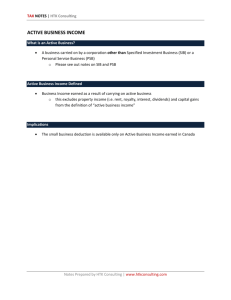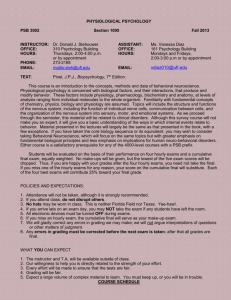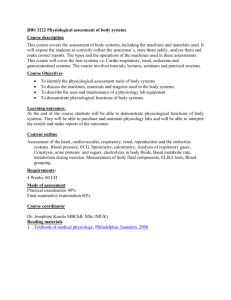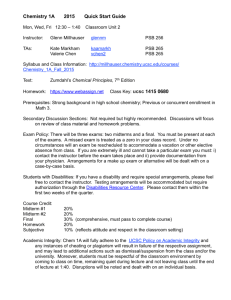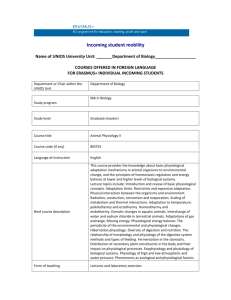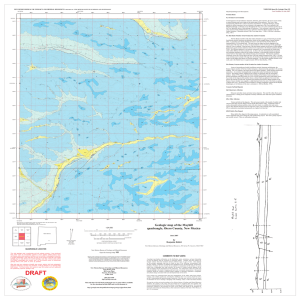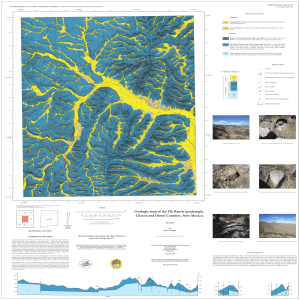General information
advertisement
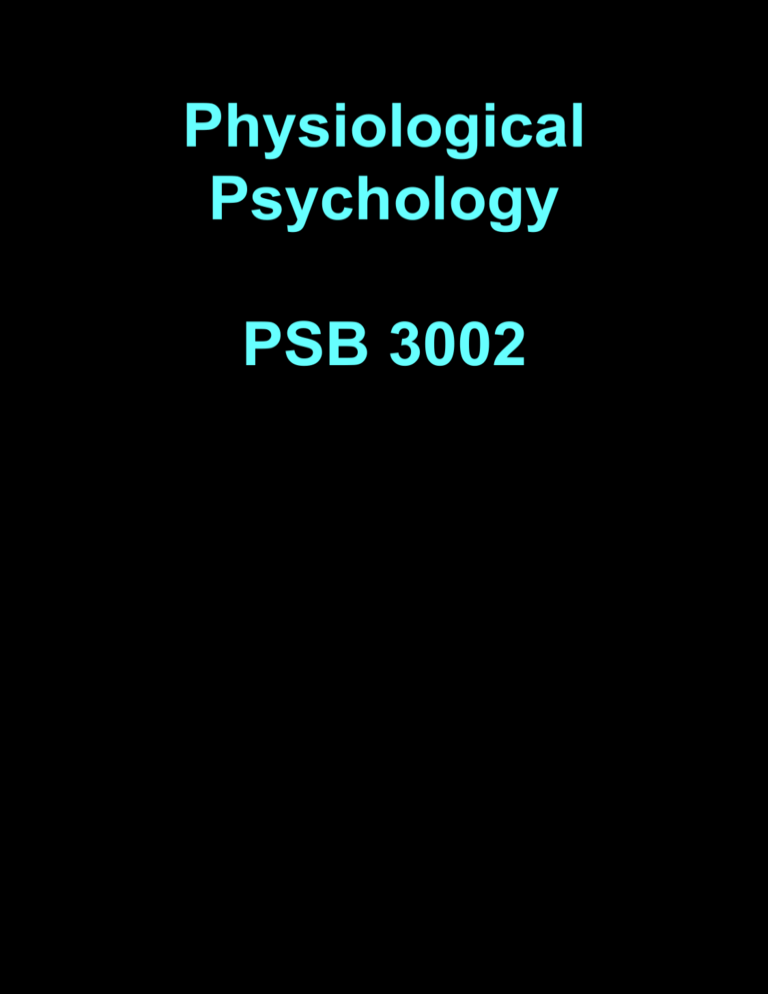
Physiological Psychology PSB 3002 Professor: Phone: Email: Office: Hours: Donald J. Stehouwer 273-2168 steh@ufl.edu 310 Psychology Bldg. Thursdays 10:40-11:30 a.m. or by appointment Assistant: Email: Office: Hours: Sridhar Srinivasan ssri1983@ufl.edu 311-F Psych. Bldg. Wednesdays, 1:00 – 3:00 p.m. or by appointment http://www.coursesmart.com/9780205039463? __professorview=false Sources for e-Textbooks www.coursesmart.com/ www.textbooks.com/etextbooks.php buyetextbooks.com/ www.barnesandnoble.com/u/etext books...textbooks/379002516/ www.cengagebrain.com/ EXAM SCHEDULE FIRST EXAM: Monday, September 17 SECOND EXAM: Monday, October 8 THIRD EXAM: Monday, November 5 FOURTH EXAM: Monday, December 3 FINAL EXAM: Tuesday, December 11 7:30 a.m. – 9:30 a.m. Fine Arts B, Room 103 Policies and Expectations 1. Attendance is recommended but voluntary. 2. Do not disrupt other students in class. 3. No hats may be worn in class. 4. You will not be allowed to take an exam if you arrive after a student has left the exam room. 5. All electronic devices must be OFF during exams. 6. Interpretations of exam questions will not be argued after the fact. 7. Errors in grading will be corrected without question. 8. An exam is “dead” after the next exam has been taken. 9. The optional cumulative final exam will serve as a make-up for any exam that is missed. This course is an introduction to the concepts, methods and data of physiological psychology. Physiological Psychology is concerned with biological factors and the interactions with each other and the environment, that produce and modify behavior. These factors include physiology, pharmacology, biochemistry and anatomy, at levels of analysis ranging from individual molecules to the whole organism. High-school level familiarity with chemistry, physics, biology and physiology are assumed. Topics will include the structure and functions of the nervous system, including the function of individual nerve cells, communication between cells, and the organization of the nervous system into sensory, motor, and emotional systems. As we proceed through the semester, this material will be related to clinical disorders. Although this survey course will not make you an expert, it will give you a basic understanding of biological bases of behavior. Material presented in the lectures will largely be the same as that presented in the book, with a few exceptions. Goals of the Course 1. Introduce the concepts, methods and data of physiological psychology. 2. Enable students to understand clinical advances in the treatment of brain disorders. 3. Enable students to read scientific literature in the brain and behavioral sciences. 4. Provide a foundation for pursuing undergraduate research in the area. 5. Provide students with the solid foundation in neuroscience that will enable them to succeed in more advanced courses. 6. Provide you with information to enable you to evaluate the scientific merit of studies and policies that may have ethical and moral implications 7. Provide you with the background necessary to make informed personal decisions . What YOU Can Expect 1. Expect a large volume of complex material. Keep up and seek help if there is anything you do not understand. Use discussion forums on Sakai. 2. The professor and T.A. will be available outside of class. 3. The willingness of the professor and T.A. to assist you will be proportional to your effort in the class. 4. Every effort will be made to ensure that the tests are fair. Material will be represented fairly No “trick” questions 5. Grading will be fair. Behavior Taxonomy Anatomy and Physiology Histology Cytology Molecular biology DNA Cellular Proteins Cells Cells and Tissues Organs Organisms Organisms and Societies Levels of analysis Biology can be studied at increasing levels of complexity, beginning with molecular biology, including genetics and biochemistry, up through the organization and behavior of organisms and societies. We will focus on levels ranging from cells to organisms in this class. Course Structure The general flow of the course will be from simple to complex. Introduction and History of Physiological Psych. Types of Cells in the Nervous System Neurophysiology Synaptic Transmission Anatomy of the Nervous System Neurotransmitter Systems Sensory systems: Visual, Auditory, Somatosensory, Olfactory and Gustatory Motor systems Special Interest Courses PSB 4240 Psychobiology of Abnormal Behavior PSB 4434 Neurochemistry, Pharmacology, and Behavior PSB 4342 Introduction to Cognitive Neuroscience PSB 4504 Developmental Psychobiology PSB 4654 Chemical Senses and Behavior PSB 4810 Neurobiology of Learning and Memory PSB 4823 Principles of Integrative Physiological Psychology PSB 4934 Special Topics in Physiological Psychology PSY 4930 Drugs and Society

